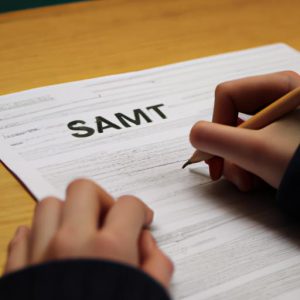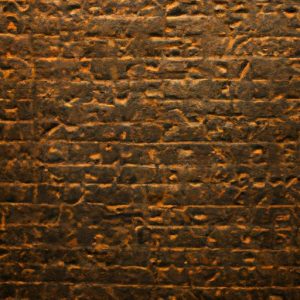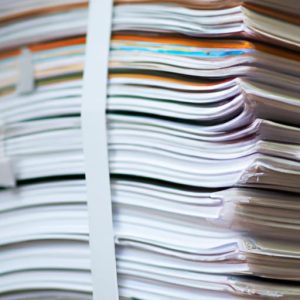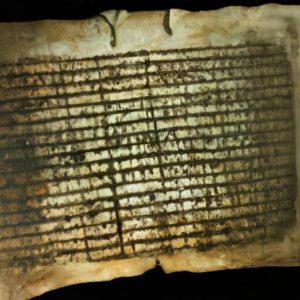Have you ever wondered what the legal implications are when it comes to writing a bad check? We often hear about the potential consequences, but understanding the severity of the offense can be confusing. In this article, we will delve into the world of bad checks and explore whether writing one can lead to felony charges.
Introduction to Bad Checks
First, let’s clarify what exactly constitutes a bad check. Simply put, it is a check that cannot be honored by a bank due to insufficient funds in the account. Now, we all make mistakes from time to time, and it’s not uncommon to accidentally write a check that bounces. But what happens when it becomes a recurring issue or is done intentionally?
Consequences of Writing Bad Checks
Writing a bad check can have serious repercussions. At the very least, it can lead to hefty fines and penalties, as well as damage to your credit score. However, the severity of the consequences depends on whether the offense is considered a misdemeanor or a felony.
Writing a bad check is typically classified as a misdemeanor, which is a less serious offense than a felony. Misdemeanors are punishable by fines, probation, community service, or a short jail sentence. However, under certain circumstances, writing a bad check can escalate to a felony charge.
Stay tuned as we explore the factors that can influence whether writing a bad check is considered a felony offense or not. We will delve into the monetary thresholds for felony charges and how previous convictions can impact the severity of the charges. Understanding these factors is crucial in comprehending the potential consequences you may face.
Understanding the Legal Implications
Misdemeanor vs. Felony: Deciphering the Difference
To comprehend the potential seriousness of writing a bad check, it’s essential to understand the distinction between a misdemeanor and a felony. Misdemeanors are considered lesser offenses, typically resulting in punishments such as fines, probation, or short jail sentences. On the other hand, felonies are more severe crimes, carrying heavier penalties and longer prison terms.
Is Writing a Bad Check a Felony Offense?
Now, let’s address the burning question: Is writing a bad check considered a felony offense? Generally, writing a bad check is categorized as a misdemeanor, given that it is usually a result of negligence or a temporary lack of funds. However, there are instances where this offense can escalate to a felony charge, depending on various factors.
Monetary Thresholds and Felony Charges
One determining factor is the monetary value of the bad check. Different jurisdictions have specific thresholds that, when exceeded, elevate the offense to a felony. For instance, if the amount written on the check surpasses a certain limit, it may be considered a felony offense, subject to more severe penalties.
Previous Convictions and Severity of Charges
Another factor that influences the charges for writing a bad check is an individual’s prior criminal record. If someone has a history of similar offenses or previous convictions related to fraudulent activities, it can significantly impact the severity of the charges. Repeat offenders are more likely to face felony charges, even for smaller amounts written on bad checks.
Understanding these legal implications is essential to grasp the potential consequences of writing a bad check. In the following sections, we will explore the specific ramifications of felony charges and possible defenses against them. Stay tuned to learn more about the potential outcomes and your options in such situations.
Factors Influencing Felony Charges for Writing Bad Checks
When it comes to determining whether writing a bad check is considered a felony offense, there are two key factors that come into play: monetary thresholds and previous convictions. Understanding these factors can shed light on the potential severity of the charges you may face. Let’s explore them in more detail.
Monetary Thresholds for Felony Charges
One crucial aspect that determines whether writing a bad check is considered a felony offense is the amount of money involved. Different jurisdictions have varying monetary thresholds that distinguish between misdemeanor and felony charges. For example, in some states, writing a bad check for an amount exceeding $500 may be classified as a felony, while in others, the threshold may be higher or lower.
It’s important to familiarize yourself with the specific laws governing bad checks in your jurisdiction to understand the monetary limits for felony charges. By staying informed, you can better assess the potential consequences you may face based on the amount written on a bad check.
Previous Convictions and Impact on Severity of Charges
Another crucial factor that can influence whether writing a bad check is considered a felony offense is your previous criminal record. If you have a history of similar offenses or have been convicted of writing bad checks in the past, it can significantly impact the severity of the charges.
Multiple convictions for writing bad checks can escalate the offense from a misdemeanor to a felony. Prosecutors may take into account your past actions when determining the appropriate charges and potential penalties. It’s essential to recognize the potential repercussions of repeat offenses and take steps to rectify any bad check issues promptly.
By understanding the monetary thresholds for felony charges and the impact of previous convictions, you can gauge the potential severity of the charges you may face for writing a bad check. In the next section, we will delve into the consequences of felony charges, shedding light on the potential long-term implications you may encounter.
Consequences of Felony Charges
Potential Jail Time and Fines
When writing a bad check escalates to a felony charge, the consequences become far more severe. Felony offenses carry the risk of substantial jail time, depending on the jurisdiction and the specific circumstances of the case. In some instances, individuals convicted of felony bad check charges may face imprisonment for several years.
In addition to potential incarceration, felony charges for writing bad checks can result in significant fines. The amount of the fine may vary based on factors such as the amount of the bad check, previous convictions, and the jurisdiction’s legal framework. It’s important to note that these fines can be substantial, potentially causing financial strain and long-term consequences.
Long-Term Implications on Criminal Record and Reputation
One of the most significant impacts of a felony conviction for writing a bad check is the long-term consequences it has on your criminal record and reputation. A felony conviction becomes a permanent part of your criminal history, potentially affecting future employment opportunities, housing applications, and even personal relationships.
Many employers conduct background checks, and a felony conviction can serve as a red flag, making it difficult to secure certain jobs. It’s essential to consider the lasting effects of a felony charge, as it can hinder your ability to move forward in various aspects of your life.
Protecting your criminal record and reputation is crucial, which is why it’s important to understand the potential consequences associated with felony charges for writing bad checks. In the next section, we will explore the available defenses and legal options that can help navigate these challenging situations.
Defenses and Legal Options
When faced with felony charges for writing a bad check, it’s important to understand the available defenses and legal options to protect your rights and potentially mitigate the consequences. Let’s explore some of the strategies that can be employed in such situations.
Legal Defenses against Felony Charges
-
Lack of Intent: One possible defense is to argue that you did not have the intention to defraud or write a bad check. If you can demonstrate that the insufficient funds were a result of an honest mistake or unforeseen circumstances, it may help your case.
-
Lack of Knowledge: Another defense is to show that you were unaware of the insufficient funds in your account at the time of writing the check. This can be supported by providing evidence of a genuine belief that the funds were available.
-
Duress or Coercion: If you were forced or coerced into writing the bad check, it can be a valid defense. Evidence of threats or intimidation can help establish this defense.
Negotiating or Reducing Charges
In some cases, it may be possible to negotiate with the prosecuting attorney to reduce the felony charges or explore alternative sentencing options. This can involve plea bargaining, where you agree to plead guilty to a lesser offense in exchange for a more lenient sentence.
Additionally, participating in a diversion program or restitution agreement can also be options for resolving bad check issues. These programs often involve completing financial education courses, paying restitution to the affected party, and adhering to certain conditions set by the court.
Remember, each case is unique, and the available defenses and legal options may vary depending on the jurisdiction and circumstances involved. It is crucial to consult with a knowledgeable attorney who specializes in criminal law to guide you through the process and provide the best possible defense strategy tailored to your specific situation.
Defenses and Legal Options
Now that we have discussed the potential consequences of writing a bad check and the factors that can determine whether it is considered a felony, let’s explore the defenses and legal options available to you if you find yourself facing charges.
Legal Defenses against Felony Charges
If you have been charged with felony offenses related to writing bad checks, it’s essential to understand that you have rights and options. Consult with an experienced attorney who specializes in criminal law to discuss the specifics of your case. They can help you explore potential legal defenses that may be applicable to your situation. Common defenses include:
- Lack of intent: If you can prove that you did not have the intention to defraud or deceive when writing the bad check, it can be a strong defense.
- Mistaken identity: If there is any doubt regarding your involvement in the transaction or if someone else used your identity, it can be a valid defense.
- Insufficient evidence: Your attorney may challenge the evidence presented by the prosecution, such as proving that the check was post-dated or that you were not aware of insufficient funds.
Negotiating and Reducing Charges
In some cases, it may be possible to negotiate with the prosecution to reduce felony charges to a misdemeanor or seek alternative sentencing options. This can be achieved through:
- Restitution: Paying the amount owed along with any associated fees and costs can demonstrate your willingness to rectify the situation.
- Diversion programs: Participating in a diversion program, such as check-writing classes or financial management courses, may lead to the dismissal of charges upon successful completion.
- Plea bargaining: Negotiating a plea agreement with the prosecution, which may involve pleading guilty to a lesser offense in exchange for a reduced sentence.
Remember, every case is unique, and the strategies available to you depend on various factors, including your jurisdiction and the circumstances surrounding the offense. It’s crucial to seek the guidance of a skilled attorney who can provide personalized advice tailored to your situation.
In the next section, we will discuss practical tips to help you avoid unintentionally writing bad checks and steps to take if you have accidentally written one. Stay tuned!





